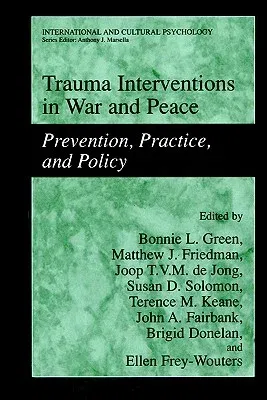Trauma Interventions in War and Peace: Prevention, Practice, and Policy (2003)Paperback - 2003, 30 June 2003

Qty
1
Turbo
Ships in 2 - 3 days
In Stock
Free Delivery
Cash on Delivery
15 Days
Free Returns
Secure Checkout

Part of Series
International and Cultural Psychology
Part of Series
International and Cultural Psychology (Paperback)
Part of Series
International and Cultural Psychology International and Cult
Print Length
388 pages
Language
English
Publisher
Springer
Date Published
30 Jun 2003
ISBN-10
0306477246
ISBN-13
9780306477249
Description
Product Details
Book Edition:
2003
Book Format:
Paperback
Country of Origin:
US
Date Published:
30 June 2003
Dimensions:
22.81 x
14.88 x
2.51 cm
ISBN-10:
0306477246
ISBN-13:
9780306477249
Language:
English
Location:
New York, NY
Pages:
388
Publisher:
Series:
Weight:
639.56 gm